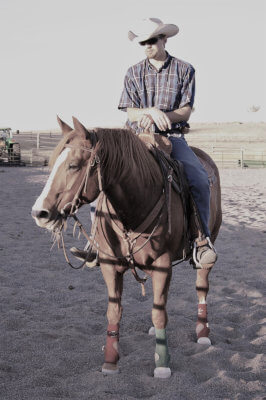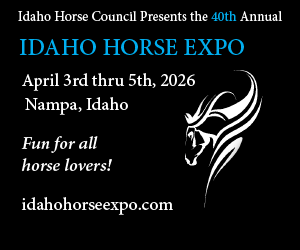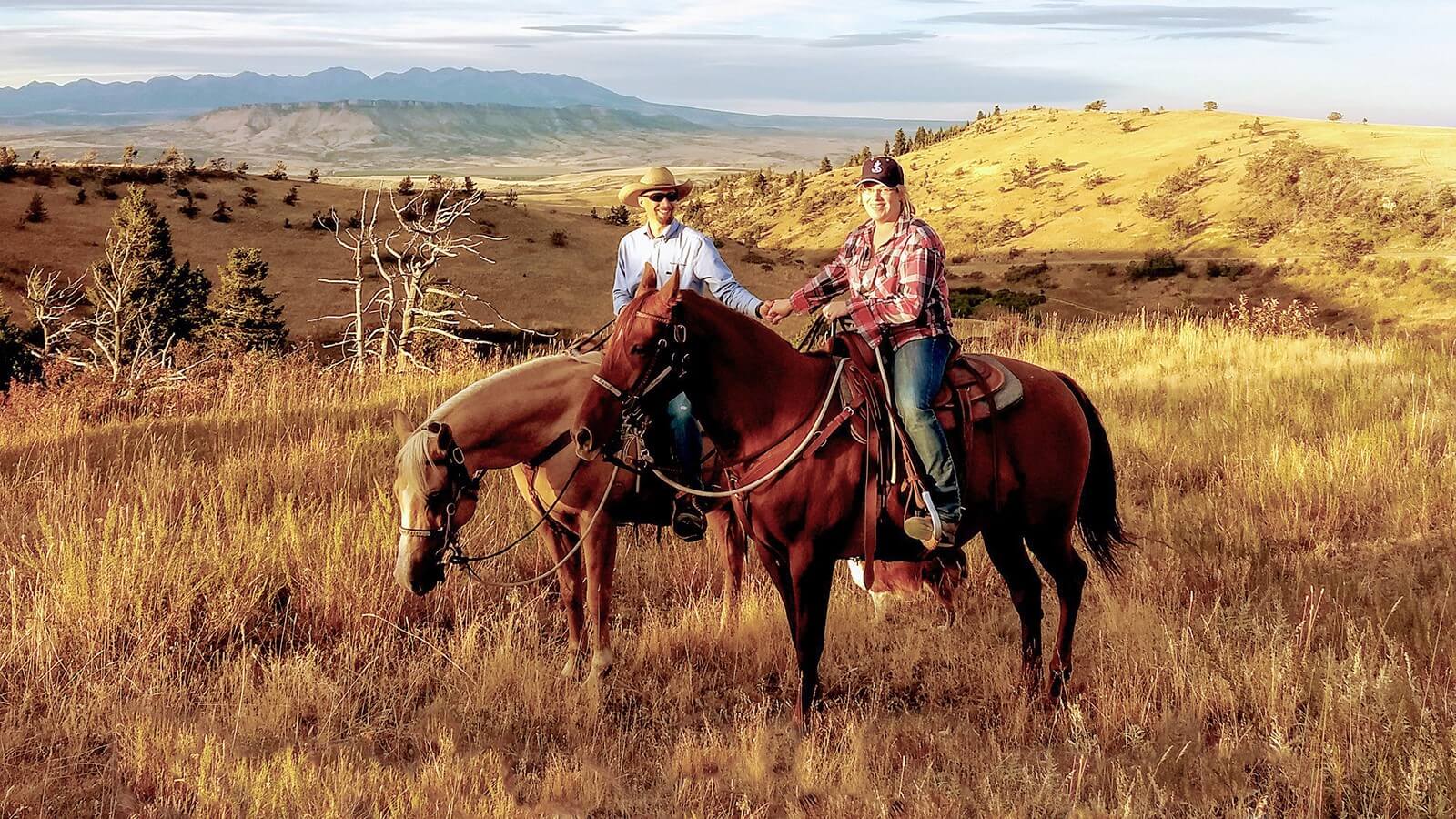Name? Ty Friedrich
Farm or Ranch Name?
Broke-N-Rode Ranch (BNRR)
Where are you located?
Livingston, Montana
What aspect of the horse business are you involved with?
We specialize in Western riding, equitation, performance; also, basic reining, cutting and cowhorse as well as trail and obstacle work. We also do basic English and low-level hunter/jumper.
What breeds have you worked with, trained, and/or shown?
We have trained AQHA, APHA, ApHc, TWH, Thoroughbreds, Warmbloods, Arabians, Fresians, Haflinger, Drafts, Fjords and Mustangs.
How many years have you been in the horse business?
18 years.
What are your business goals?
 Our one year goals are: to teach a Christ-centered, in-person horsemanship clinic, continue to produce weekly horsemanship devotionals and expand this in any way possible—online, in print or audio; to get a performance-horse prospect on the ground out of our Cat-Ichi mare; to breed our Half-Arabian Paint mare to produce a ranch horse prospect; to continue to grow in our horsemanship, to show one of our mares locally in the next 12 months; and to disciple through horsemanship at each of the previous goals and beyond.
Our one year goals are: to teach a Christ-centered, in-person horsemanship clinic, continue to produce weekly horsemanship devotionals and expand this in any way possible—online, in print or audio; to get a performance-horse prospect on the ground out of our Cat-Ichi mare; to breed our Half-Arabian Paint mare to produce a ranch horse prospect; to continue to grow in our horsemanship, to show one of our mares locally in the next 12 months; and to disciple through horsemanship at each of the previous goals and beyond.
Our five year goals are: to help Christian horse-people live more Christ-like lives through horsemanship discipleship and internships; to help open the eyes of non-Christian horse people to see that God is speaking to them through their horses; to increase to two or three Christ-centered Horsemanship clinics per year, and to find a way to do after school group lessons with a discipleship focus.
What are your accomplishments? Any titles?
I graduated from Canyonview Equestrian College in 2003, specializing in Western performance and facility management. I was a faculty member of Canyonview Equestrian College, 2003-2007; certified master instructor of the Certified Horsemanship Association from 2003 to the present. I’ve been full-time in the horse business since 2001.
Do you belong to any clubs or organizations?
The Certified Horsemanship Association, Master Instructor and the AQHA.
What’s your training philosophy?
BNRR takes an eclectic approach to horsemanship. We have been fortunate to have been exposed to many excellent trainers and philosophies from many disciplines. Our goal is to take the best from all of these in order to have a deep “bag of tricks.” We want to be able to explain what we are asking our horses in many different ways, so that we can find a way that makes sense to the horse.
We strive to think through each maneuver, break it down into many pieces, and teach the maneuver one piece at a time. In so doing, the horse is able to find success and learn in a positive environment. This gains trust and partnership and builds confident horses that expect to succeed, adapt to changing situations, and can be trusted.
We believe that discipline is at times needed but should only be given with an eye to blessing the horse’s future, never retribution for the past. BNRR believes that horses are a reflection of their riders and are sent by God for His glory and our growth.
What are your goals in training your own horses?
No matter what we are trying to do, we want to train with the “3 Rs”:
- Relational – Everything we do with every horse must only improve our relationship with it. Anything that damages the relationship is counter-productive and will cause the horse to feel the need to defend itself, thus act out with poor behavior.
- Reflective – We fundamentally believe that horses are a reflection of their rider/trainer. Thus, when we encounter issues, we will first look to ourselves to see what we may be doing to cause the issue. Often, God uses horses to reflect our character flaws back to us. We want to be humble enough to see these as learning opportunities.
- Refinement – Progress should be made by small, incremental refinements, not sweeping changes. We must understand each maneuver thoroughly enough to see and reward every tiny step toward obedience. If our horse is struggling, we must break down the exercise further or approach it differently in order to give a chance to reward each refinement.
To learn more visit broke-n-roderanch.com
Find them on Facebook: Broke-n-Rode Ranch
See this article in the December 2021 online edition:

The Northwest Horse Source is an independently owned and operated print and online magazine for horse owners and enthusiasts of all breeds and disciplines in the Pacific Northwest. Our contemporary editorial columns are predominantly written by experts in the region, covering the care, training, keeping and enjoyment of horses, with an eye to the specific concerns in our region.






